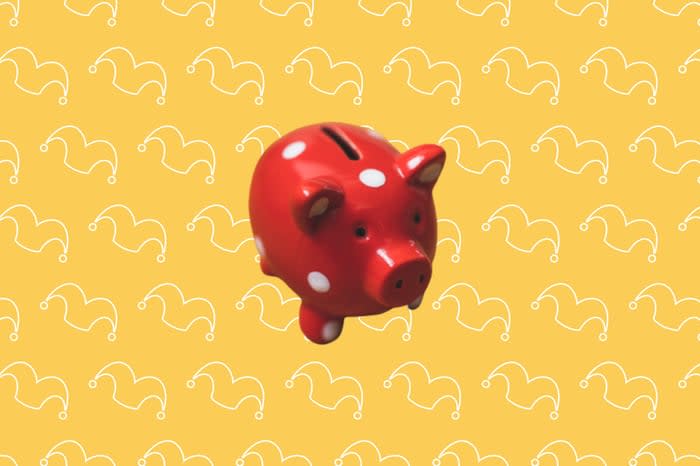The Sneaky Way Banks Rob You of Money -- and What to Do About It

Image source: The Motley Fool/Unsplash
There's a reason I keep my savings in a bank account, and not in a shoebox under my bed. In addition to wanting to protect that money, I prefer to earn interest on my cash savings rather than let it sit somewhere in my room collecting nothing but dust.
But the amount of interest you think you're earning in a savings account may not be the amount you actually walk away with thanks to a sneaky practice from banks. That's what happened to me recently, and it can happen to you, too.
When your APY drops and no one tells you
When the APY on my savings account went from 4.35% to 4.25% last year, I didn't notice at first. It wasn't until I received my monthly interest payment that I realized my bank had cut my interest rate down a bit.
Now, you can argue that a drop from 4.35% to 4.25% isn't so terrible. For a $10,000 savings balance, you're earning $10 less per year.
But $10 isn't the point. The point is that banks can just change your APY at any time without warning.
And it's not like I missed some big announcement at the top of my account page. There was no "Hey, heads up, we've changed your APY" notice.
Rather, my bank just went and changed my APY and started paying me less because it could. And that's something you should be aware of if you're banking on earning a specific amount of interest on your money.
How to guarantee yourself the interest rate you want
There's really only one way to guarantee that the interest rate you start out collecting on your money is the interest rate you'll continue to get -- open a CD. If you open a $10,000, 12-month CD with a 5.00% APY, you're guaranteed to earn 5.00% on your money for a full year. That means you can bank on walking away $500 richer.
If you have specific financial goals you're saving for that hinge on earning a certain amount of interest, then putting your money into a CD is the best way to stay on track. And that's an especially important thing to consider right now given that interest rates are likely to start falling in 2024.
The Federal Reserve oversees monetary policy and is tasked with setting a benchmark interest rate known as the federal funds rate, which banks are subject to for overnight borrowing. When the federal funds rate rises, savings account and CD rates commonly follow suit. When the federal funds rate falls, savings accounts and CDs start paying less.
Since the Fed has signaled that it's looking to cut rates later this year, it's an especially good time to put money into a CD and guarantee your rate for a period. To put it another way, if you stick with a regular savings account, you may end up a lot less happy with its interest rate by the end of the year.
Of course, with a CD, you're making a commitment to keep your money tied up, and there can be costly penalties for cashing out a CD before it matures. So you'll need to make sure any funds you put into a CD represent money you don't expect to need for the duration of its term.
But if you don't want your bank to pull a fast one and lower your interest rate without warning, then you should open a CD -- and do it now, while rates are sitting at some of the highest levels we've seen in years.
Alert: highest cash back card we've seen now has 0% intro APR until 2025
This credit card is not just good – it's so exceptional that our experts use it personally. It features a 0% intro APR for 15 months, a cash back rate of up to 5%, and all somehow for no annual fee!
Click here to read our full review for free and apply in just 2 minutes.
We're firm believers in the Golden Rule, which is why editorial opinions are ours alone and have not been previously reviewed, approved, or endorsed by included advertisers. The Ascent does not cover all offers on the market. Editorial content from The Ascent is separate from The Motley Fool editorial content and is created by a different analyst team.The Motley Fool has a disclosure policy.
